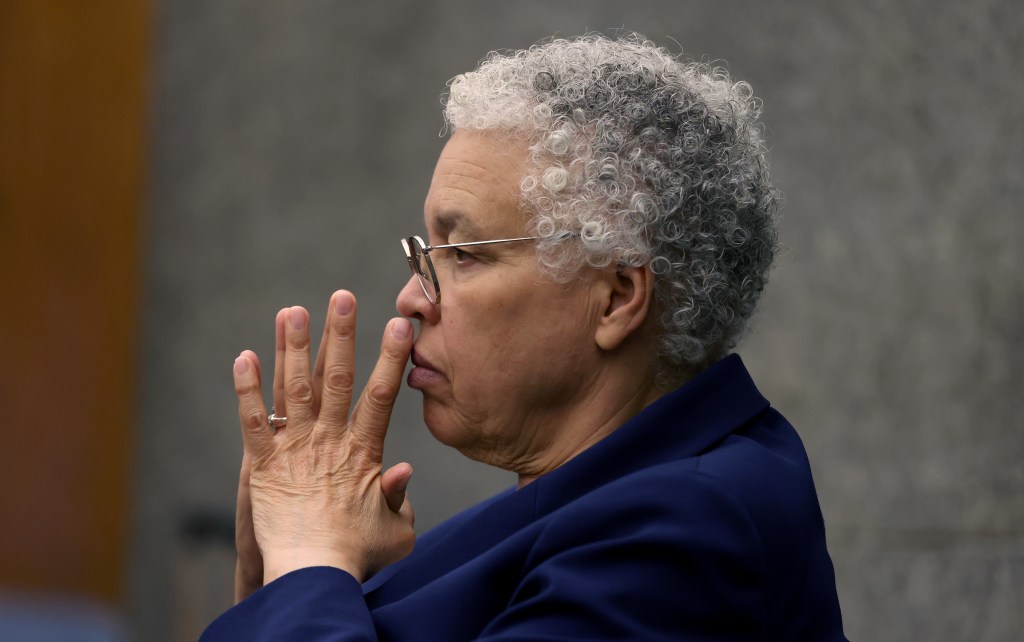Who pays for governmental ineptitude?
In considering that question in its many contexts, this board has focused mainly on taxpayers and understandably so. After all, they’re the ones footing the ever-growing bills for government.
But an underappreciated category of victims is fellow governments. A current stark case in point: Cook County’s failure to deliver second-installment property taxes on time — due to monumental computer glitches tied to a new system that has been delivered late and well over initial estimates — is costing some municipal bodies significantly.
Various county officials, from Assessor Fritz Kaegi to County Board President Toni Preckwinkle, have pointed fingers at each other over the snafu. At the root of the problem is a highly troubled overhaul, riddled with errors and delays, of Cook County’s computers and systems, a job contracted years ago to Texas-based Tyler Technologies. The Tribune along with Injustice Watch thoroughly documented the fiasco in April, outlining how Preckwinkle in particular opted to stick with Tyler some years ago after the company blew some of their first deadlines on the project.
But the county officials’ blame game doesn’t help local governments that rely heavily on property tax revenue to keep the lights on and make payroll, some of which are having to scramble for cash.
The most visible example is the beleaguered Chicago Public Schools, which is nearly two months late making a $247 million mandated contribution to the pension fund for Chicago teachers. That payment was due June 30. It’s still unclear when property tax bills will be mailed out, which then will give property owners a month to pay. But it’s possible CPS won’t see any revenue until as late as the end of October, according to a Bloomberg story laying out the predicament.
The longer the pension payment is delayed, the more CPS will have to pay the teachers pension fund to make up for what the fund would have earned on the money if it had been provided on time. As of Aug. 22, CPS owed close to $2.4 million and that sum will only grow as the delay wears on.
For a school district with a proposed fiscal 2026 budget of $10.2 billion, $2.4 million isn’t a lot. But CPS also happens essentially to be broke, so the fact that it has to pay millions more thanks to the incompetence of a separate municipal body is beyond aggravating.
In the meantime, CPS is paying millions in interest just to make payroll and keep the lights on in the absence of property tax revenue, using lines of credit backed by future tax receipts. If the cash from property taxes doesn’t come in until the end of October, CPS will have paid at least $10 million in interest just to cover operations over several months.
This situation at the very least should cause keen embarrassment for Preckwinkle, a former teacher and a staunch advocate for public schools in general and CPS in particular. Preckwinkle will release her proposed county budget in October and, morally at least, ought to be considering compensating CPS and other school districts and taxing bodies for the money the county’s failure is costing them.
Will that happen? We won’t hold our breath. This isn’t the first year that Cook County property tax bills have been late. But we haven’t seen CPS quite at this level of fiscal distress during previous tardy episodes.
So much of the focus on Chicago’s governance issues has been trained on the schools and City Hall in recent years, with Cook County government looking competent by comparison as it has balanced budgets usually without hiking property taxes. This year Cook County’s governance lapses are costing CPS dearly, and taxpayers ultimately will have to pay the cost. As they always do.
Submit a letter, of no more than 400 words, to the editor here or email letters@chicagotribune.com.
